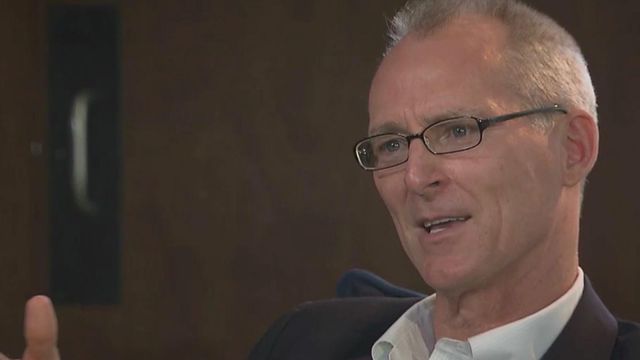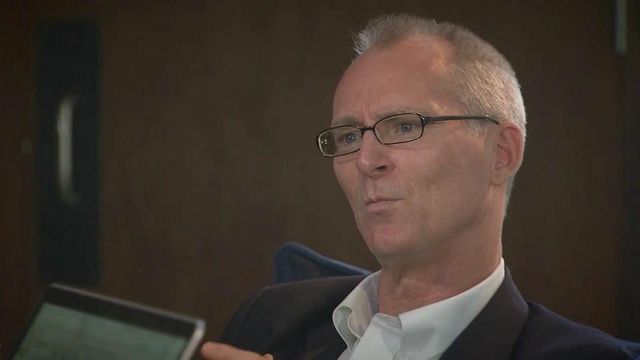Former Republican congressman embraced climate change, lost re-election
Former U.S. Rep. Bob Inglis, a Republican from South Carolina, lost his bid for re-election after he embraced climate change. Now, he heads a nonprofit aimed at convince conservatives that climate change is a real problem that can be solved.
Posted — UpdatedWhen former U.S. Rep. Bob Inglis takes the stage these days, he tries to explain how climate change has caused a political storm.
“All I knew was Al Gore was for it, so I was against it,” said Inglis, a Republican who served the 4th District of South Carolina from 2005 to 2011.
During his re-election campaign in 2010, his son spoke up about the future.
“He said, ‘Dad, I’ll vote for you, but you’re going to clean up your act on the environment,” Inglis recalled. “I know that my son loves me and he was going to vote for me no matter what. He just wanted me to be what I could be, and he knew I wasn’t there yet.”
After some research, Inglis embraced the science of climate change – and he lost the election.
“It was a rather spectacular face plant. I went from 85 percent down to 29 percent,” he said.
But Inglis said he’s the same conservative he’s always been. He’s now the director of Republic En, a nonprofit group that aims to convince conservatives that climate change solutions can be embraced across the political spectrum.
“I think that my tribe – Republicans, conservative – have an undeserved inferiority complex,” Inglis said. “Apparently, we think we are no good when it comes to energy and climate. But we’re very good. We’ve got the answer – the answer is free enterprise. Eliminate all the subsidies for the special fuels, and eliminate the biggest subsidy of them all, which is being able to dump into the trash dump of the sky without paying a tipping fee.”
“When the tribe is under pressure, orthodoxy is very fixed and very definitive,” he said. “You’ve got to prescribe to that and repeat it whenever called upon.”
“The better approach is to have creative collaboration, to say you have some strengths in your party – and we have some strengths in ours – now let’s pull together. Let’s get together and unite,” he said.
Inglis said America can get together on climate change and lead a global solution. And saving the world means persuading young leaders to throw out traditional divides.
“It’s like when you get the wake-up call on diet or exercise or smoking or whatever it is,” he said. “You don’t want to miss a wake-up call. We have a wake-up call all around us. The alarms are going off.”
Hearing those alarms doesn't mean being an alarmist, Inglis said.
He said part of the problem is people research the topic by looking for articles that support their already-held opinions. Getting real answers depends on how you phrase the question, he said.
“If you’re already thinking it’s a fraud and you somehow ask Google to tell you about climate fraud, (it) will return to you all kinds of information,” Inglis said.
As he took a serious look into the science of climate change, Inglis found dogma rather than true data. He points to the North Carolina Republican Senate Debate, where each candidate was asked about climate change.
The Republican stance dismissing climate change is a storm he just can't weather.
“If you increase that sense of being able to do something about it, then people can consider the problem,” he said. “But if you think there is nothing you can do about it, denial is a pretty good coping mechanism.”
• Credits
Copyright 2024 by Capitol Broadcasting Company. All rights reserved. This material may not be published, broadcast, rewritten or redistributed.






